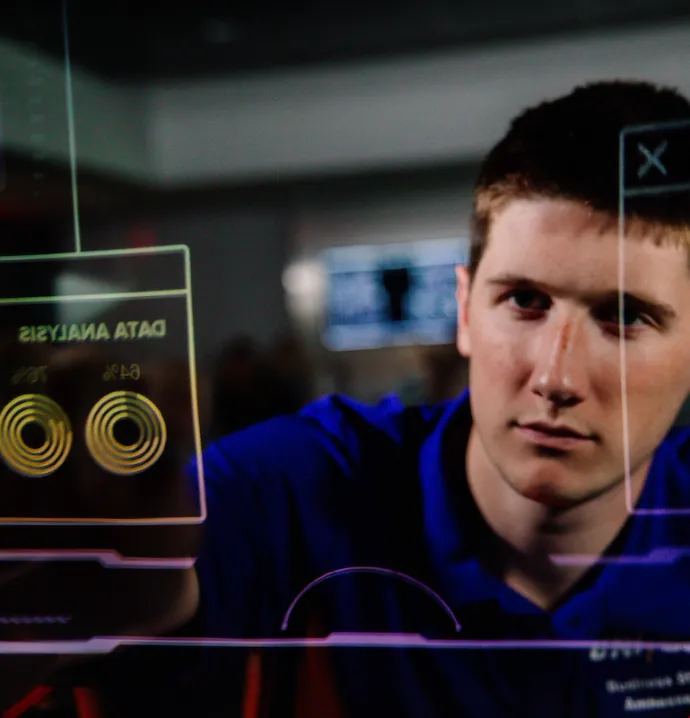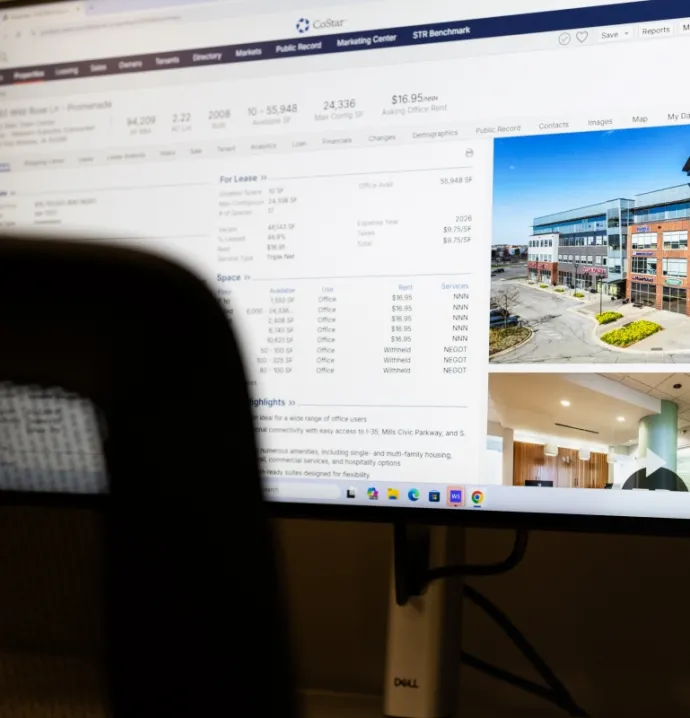Transamerica helps students turn data into intelligence
Transamerica helps students turn data into intelligence
In the world of data, you can know everything and still know nothing.
We are creating more data than ever before. Every minute, Google conducts 3.8 million searches. Amazon ships more than 1,000 packages. YouTube users watch 4.3 million videos. Every minute. And that was in 2018. By 2020, it’s estimated that 1.7 MB of data will be created every second for every person on the planet.
This explosion of data has created seismic shifts in the business landscape. It means businesses have access to virtually endless information about consumer habits and preferences, about market needs and inefficiencies. Called “big data,” it’s created an insatiable demand for data analysts and data scientists who can mine valuable insights from massive information sets.
But having all the answers is only valuable if you ask the right questions.
Enter the University of Northern Iowa College of Business Administration, which has expanded its curriculum to educate its students not just about how to analyze data, but how to use it in a business setting.
“If you don’t understand the business and how it operates, you’re not going to be asking the right questions,” said Leslie Wilson, dean of UNIBusiness. “That’s where our students come in. They can take the data that’s been collected and ask the right questions to glean insights from it.”
The data boom has made employees with data analytics skills a valuable commodity, and UNIBusiness starts introducing its students to the core concepts of data science early, giving them the skills to distill large data sets into practical components.
For many students, the introduction to the world of data starts in the Decision Analytics class, which not only teaches the students how to employ data into the decision-making process, but also instills a key data concept: Not all data are created equal.
“We’re trying to make sure they remain skeptical in the modeling process,” Wilson said. “Your output is only as good as your inputs, and if the data is not very good, neither will be the decision. So that’s part of the critical thinking skills that we infuse in our students.”
Once students receive a solid foundation, they start to branch out into more specialized areas, but they’re not leaving the world of data behind. The subject touches almost every major UNIBusiness offers, from supply chain management to marketing to human resources.
One field that is seeing major changes due to the influx of data is accounting.
“Accountants are poised to be key in many data-analytics initiatives because of their analytical and critical-thinking skills, as well as their business acumen,” said Amy Igou, assistant professor of accounting. “By adding more technical skills, accountants can be valuable partners in business, and we’re updating our curriculum to add modules so students are better prepared for these changes.”
Beyond adding new data-focused classes, UNIBusiness also created new learning spaces that emphasize teamwork and collaboration when analyzing and deploying data.
At the forefront of this effort is the Transamerica Business Intelligence and Analytics Lab, a technology-driven learning environment featuring nine work stations tied together by a high-resolution monitor and laptops, simulating a modern, collaborative business environment.
The lab was made possible by a $500,000 donation from the Aegon Transamerica Foundation awarded in September 2015, continuing the company’s legacy of philanthropic support for UNI stretching back to 1989.
“Students enter the room for the first time and usually say, ‘Wow!’” Igou said. “The environment feels more relaxed than a traditional classroom, which makes them more engaged with the content.”
In the lab, students work in teams and are able to share information on their computers to a larger screen, so the entire class can analyze a problem. This type of teamwork is essential in a world where data sets are growing exponentially.
After all, it’s called “big data” for a reason.
UNIBusiness thanks Aegon Transamerica for the generous contribution to the College of Business Administration.




